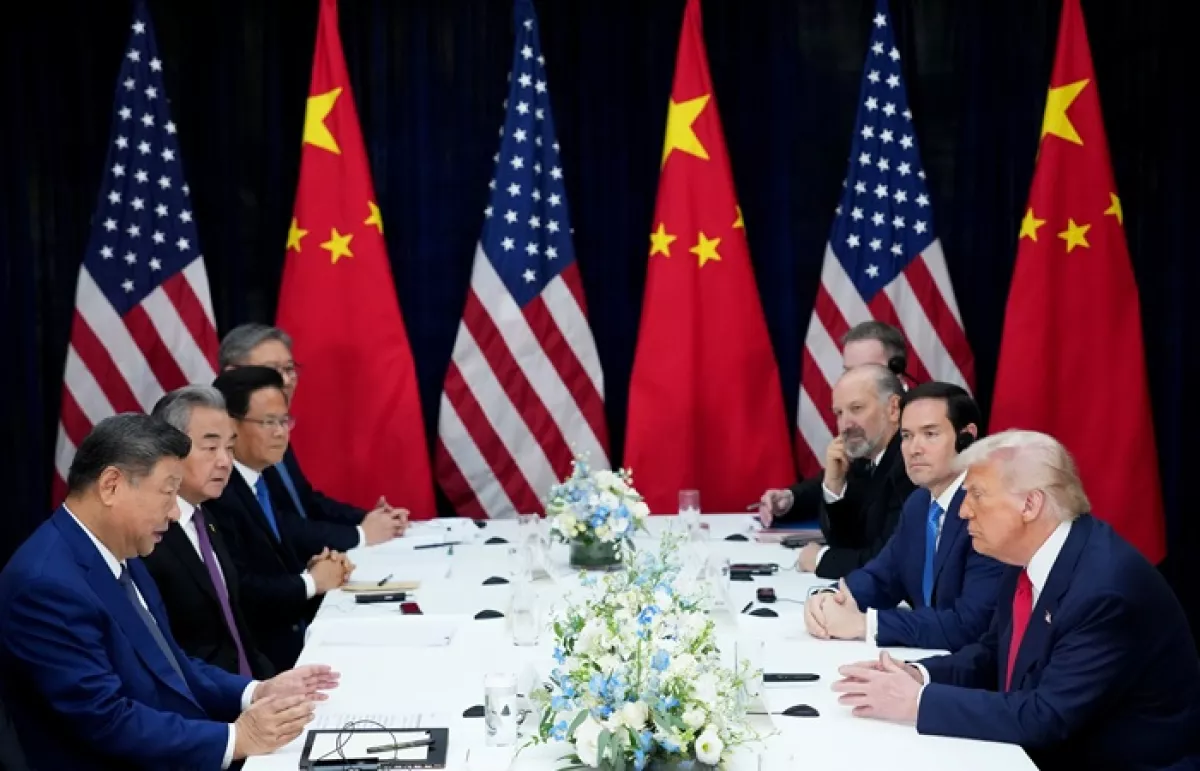Until better times Trump and Xi reach a compromise
On October 30, the long-awaited meeting between the leaders of two superpowers and the world’s leading economies — the United States and China — finally took place. Donald Trump and Xi Jinping held talks in Busan, South Korea. For Trump, this meeting was part of a broader tour across Asian countries. On the other hand, one could say the reverse is also true: Trump’s earlier negotiations and agreements with the leaders of Malaysia, Japan, and South Korea should likewise be viewed in the context of the global confrontation between Washington and Beijing.
The exceptional importance of this particular meeting was underscored by the fact that, after meeting with Xi, Trump flew home without attending the Asia-Pacific Economic Cooperation (APEC) summit, which will begin on October 31 nearby — in the South Korean city of Gyeongju. In other words, from any angle, the Busan meeting has become a pivotal global event of recent days.
And that is hardly surprising, since the trade war between the world’s two leading economies threatened to trigger global economic turmoil. As is known, just a few days earlier, Beijing had sharply tightened restrictions on the export of rare-earth elements and the magnets made from them — materials essential for virtually all high-tech production. To grasp the scale of the potential consequences, it is enough to note that China accounts for over 70% of global rare-earth mining and 90% of their processing. In response, Washington threatened to raise U.S. tariffs on Chinese goods to 157%.
So, what did the two sides ultimately achieve in the negotiations? Did they reach a breakthrough agreement, a temporary compromise, or was it a complete failure?
However, just a few days ago, U.S. Treasury Secretary Scott Bessant had already hinted at this outcome. Following two days of trade negotiations with the Chinese side in Malaysia, he stated: “So I would expect that the threat of the 100% has gone away, as has the threat of the immediate imposition of the Chinese initiating a worldwide export control regime [in relation to rare earth metals – ed.].”
And now, early this morning, after a meeting that lasted an hour and forty minutes, Trump told reporters that he could rate the “amazing” talks “12 on a scale of one to 10,” adding that a one-year deal would soon be signed. It was also announced that the U.S. president plans to visit China in April 2026, with a “soon” reciprocal visit by Xi also on the table.

Among the specific decisions announced was the reduction of the average U.S. import tariff rate for Chinese goods from 57% to 47%. In addition, Trump declared the “immediate” resumption of China’s purchases of American soybeans — a suspension that had severely hurt U.S. farmers. Finally, Beijing, according to Trump, will ensure the “unhindered” export of rare-earth elements for one year, after which the deal is expected to be extended.
To the disappointment of many, the foreign policy agenda of the meeting between the two leaders was far less eventful. “We talked about it for a long time. And we’re both going to work together to see if we can get something done. We agreed the sides are locked in, and they are fighting and sometimes, you have to let them fight, I guess … crazy. But he’s [Xi - ed.] going to help us and we’re going to work together on Ukraine,” Trump said. At the same time, the issue of China’s purchases of Russian oil, as well as the Taiwan question, was not raised.
Such a demonstratively casual attitude toward geopolitical matters may have been intended to emphasise mutual respect — within which foreign policy issues are not to be used as manipulative tools for resolving bilateral problems.
So, a compromise has been reached, and the markets can breathe a sigh of relief. A number of analysts argue that China held the stronger position in this standoff, ultimately forcing the United States to back down. According to Nobel laureate in economics Paul Krugman (USA), dependence on rare-earth metals proved more critical for the United States than the need of Chinese manufacturers for access to the American market. It is no coincidence, commentators note, that it was the American president who initiated the meeting with the Chinese leader.
The good news is that the heads of the United States and China have once again set a precedent for the possibility and willingness to reach compromise. The bad news, however, is that the Busan agreements do not resolve the fundamental contradictions between the two powers. Not only are they temporary — limited to one year — but, equally importantly, they do not address the trade imbalance between the countries or ease their military-technological rivalry.








